Israel and Palestine
‘There are things you can’t understand unless you see them’
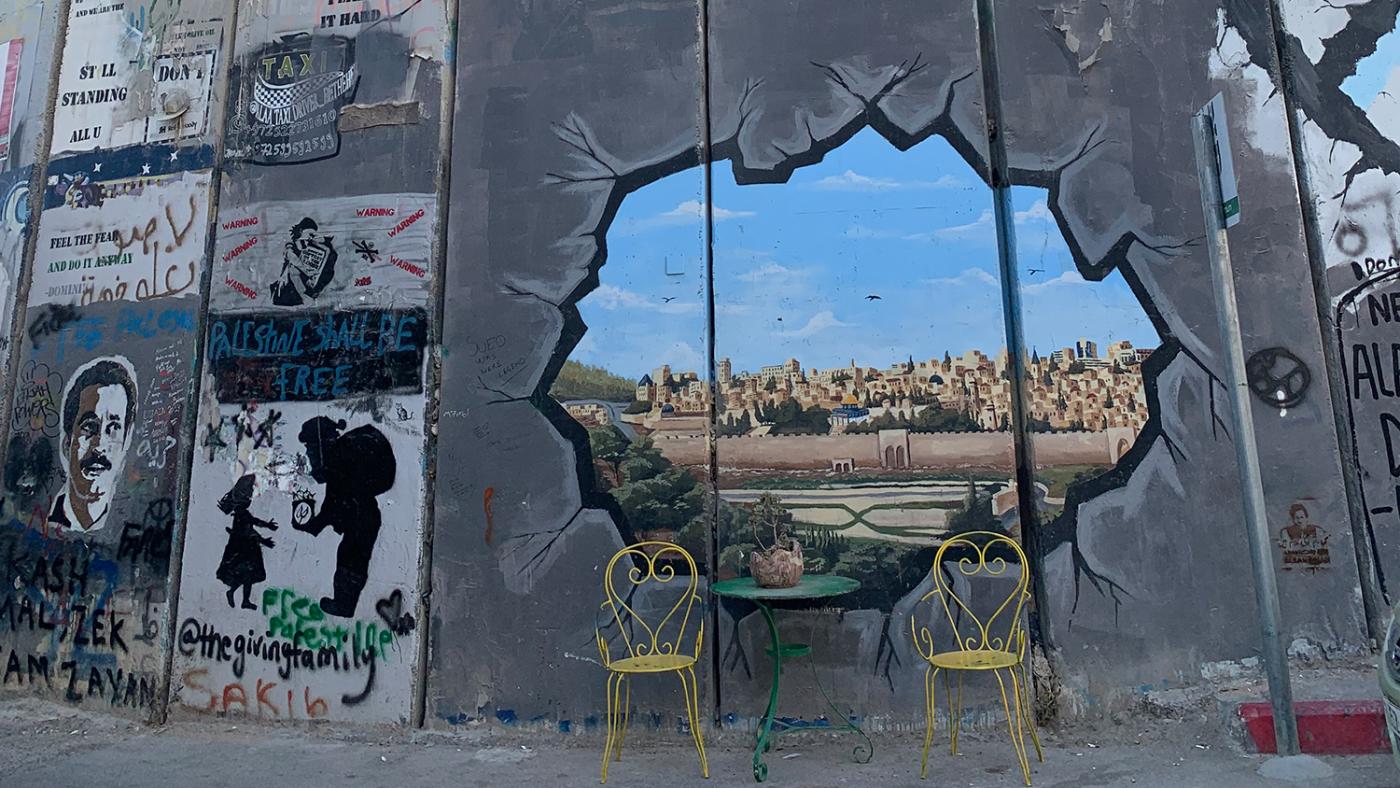
Ashleigh (29) is sitting in her old student room in Utrecht, this time as a guest. She didn’t expect to be back there so soon. After completing her Master’s in International Relations in August, the UU graduate from Australia left on September 15 for Nablus, in the West Bank. She was supposed to stay there until December doing an internship at Tomorrow’s Youth Organisation (TYO), which provides educational and psychosocial support to women and children in refugee camps.
Hamas’ attack against Israel on October 7 changed everything for her. One week and a half after the attack, TYO arranged for her and other international colleagues to cross the border with Jordan and fly back home.
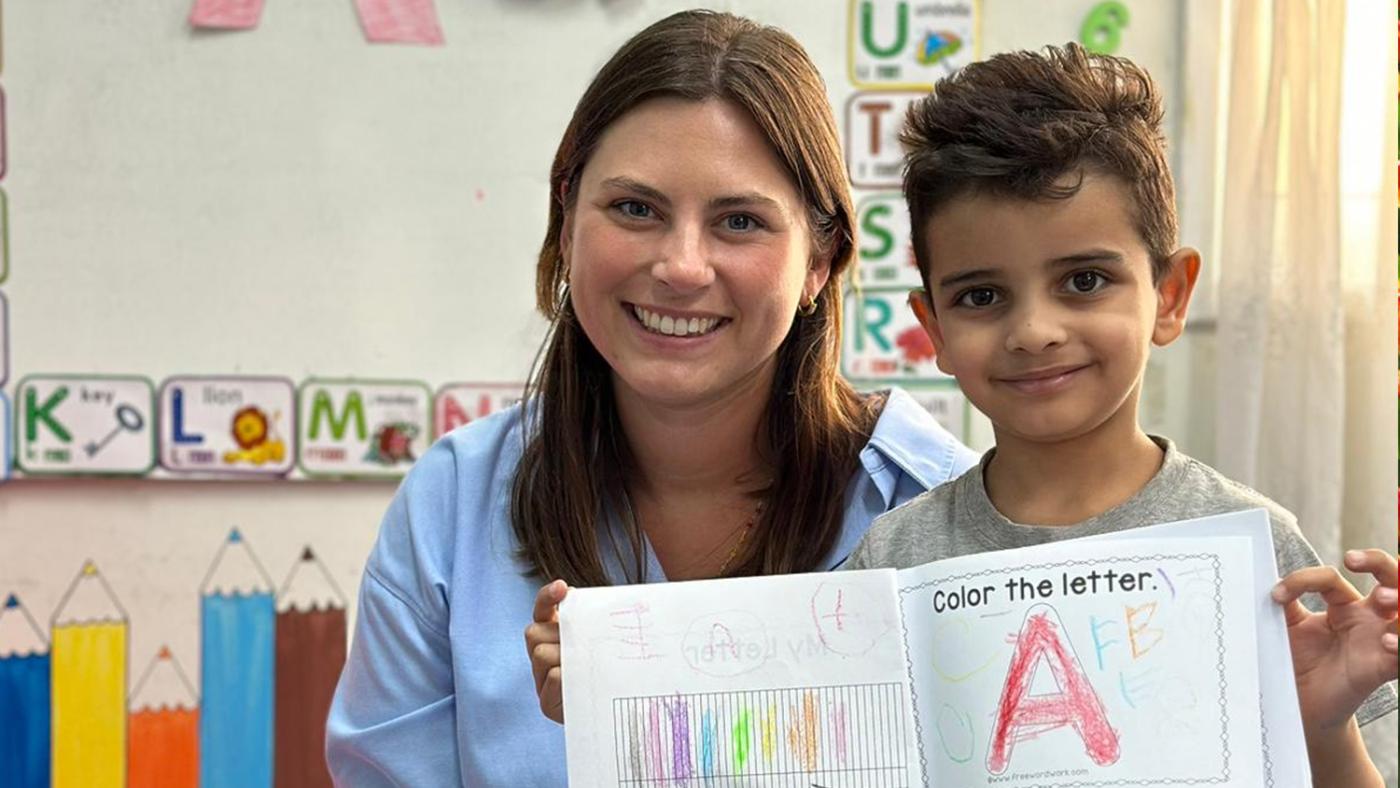
Photo: courtesy of Ashleigh
Saying goodbye to her colleagues was “very dramatic", Ashleigh recollects. “One of the hardest parts was dealing with the inequity of it all. It’s a horrible feeling not to know what’s going to happen with the people you’ve met, with those kids.” However, the psychologists and teachers with whom she was working told her that guilt is not a helpful emotion. “They said: ‘We appreciate that you were here, but it doesn’t help us for you to feel guilty. The best thing you can do is tell people about what you saw.’”
Although her first three weeks in the West Bank were spent in “relative normalcy”, the UU graduate notes that “the situation has always been violent in the region. For example, two days before Hamas’ attack, a Palestinian teenager was killed by Israeli settlers in a village near where she was staying.
Despite being there for a short amount of time, Ashleigh quickly internalised the constant state of suspicion and hypervigilance of those around her. But her colleagues seemed accustomed to the situation. Even after Hamas’ attack, they just kept on going. “The rest of the internationals were like: ‘This massive thing is happening, why is no one reacting?’ And they would say: ‘This is not the first time we’ve been scared. Being scared doesn’t serve these kids.’”
According to Ashleigh, one of the most common challenges faced by mothers in the West Bank is actually quite relatable: limiting kids’ screen time. However, in the West Bank, excessive mobile phone use tends to happen for entirely different reasons. “In the refugee camps, families of six to eight people have to live in only two rooms. Kids are always on their phones because they don’t have any space to run around and play.” In addition, children have trouble sleeping because of gunfire sounds, people yelling, or the occupation forces coming into the camp at night and waking everybody up. This impacts their ability to concentrate during the day, she says.
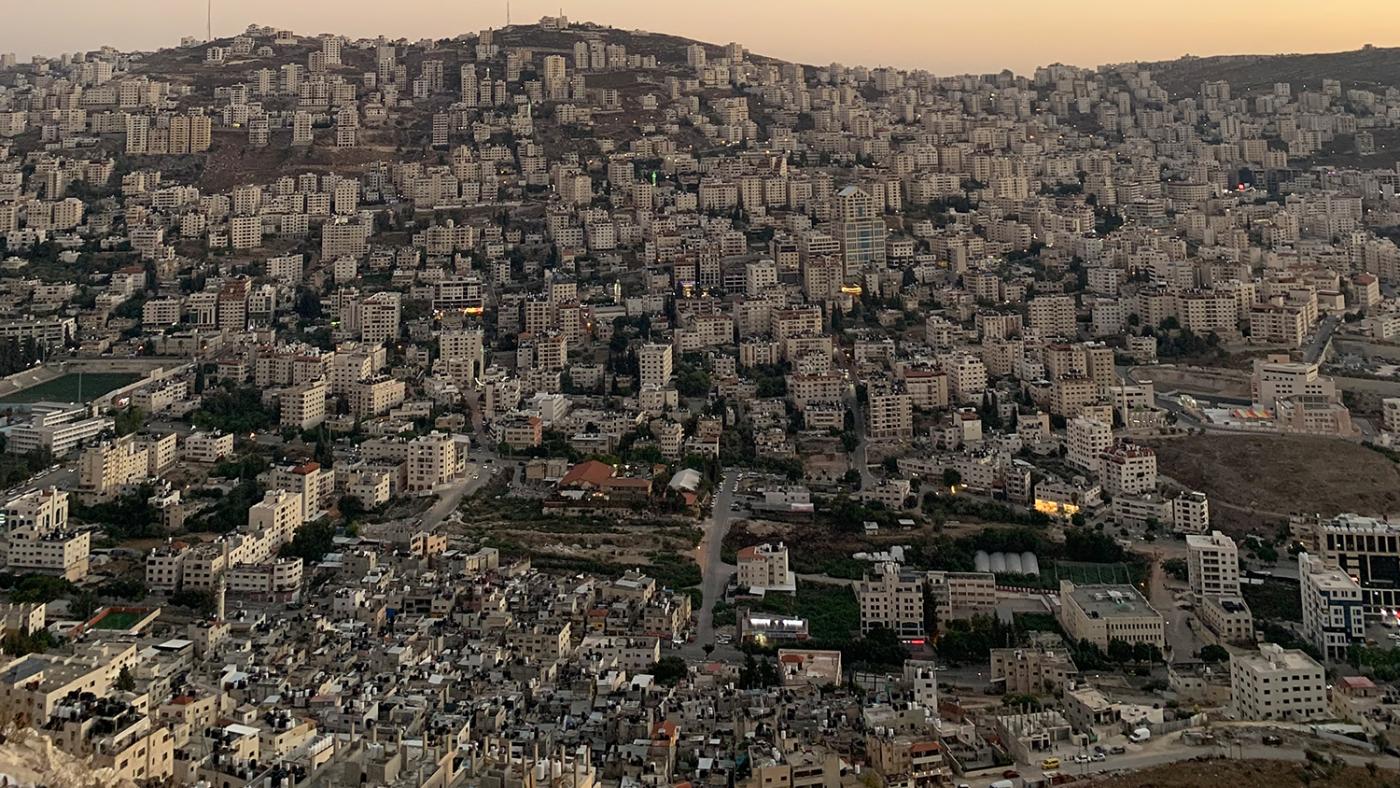
Photo: courtesy of Ashleigh
The day before Hamas’ attack, Ashleigh travelled to Tel Aviv. Crossing the border between the West Bank and Israel was a shocking experience. “The bus from Nablus to Tel Aviv drops you off about 400 metres from the checkpoint because Palestinian drivers are not allowed to drive on the Israeli roads leading to it without a permit. So, you have to walk up the highway towards this big guard tower, which was a humiliating and scary experience. After showing my passport and going through security, I had to wait for a bus on the other side and there was a guy with an assault rifle. Not a soldier, just a guy hanging out. But Tel Aviv was so different, life seemed so normal. It’s like two different worlds. I couldn’t reconcile how different things were just 30 kilometres away.”
Ashleigh was evacuated from the West Bank after two nights of heavy gunfire and concerns about a regional escalation of the conflict. People were too scared to leave their homes, which gave Nablus an “eerie, dystopian appearance” as Ashleigh and other international interns and volunteers were taken towards the checkpoint by a Palestinian driver. He was from Jerusalem, so he had double citizenship and a car with Israeli plates. “Even so, that wasn’t an entirely safe journey for him, because if a settler sees that you’re Arab, they might not care if you have Israeli plates or not,” she observes. Violence between Israeli settlers and Palestinians has increased significantly since October 7. “At the checkpoint, soldiers pointed big guns directly at the oncoming traffic.”
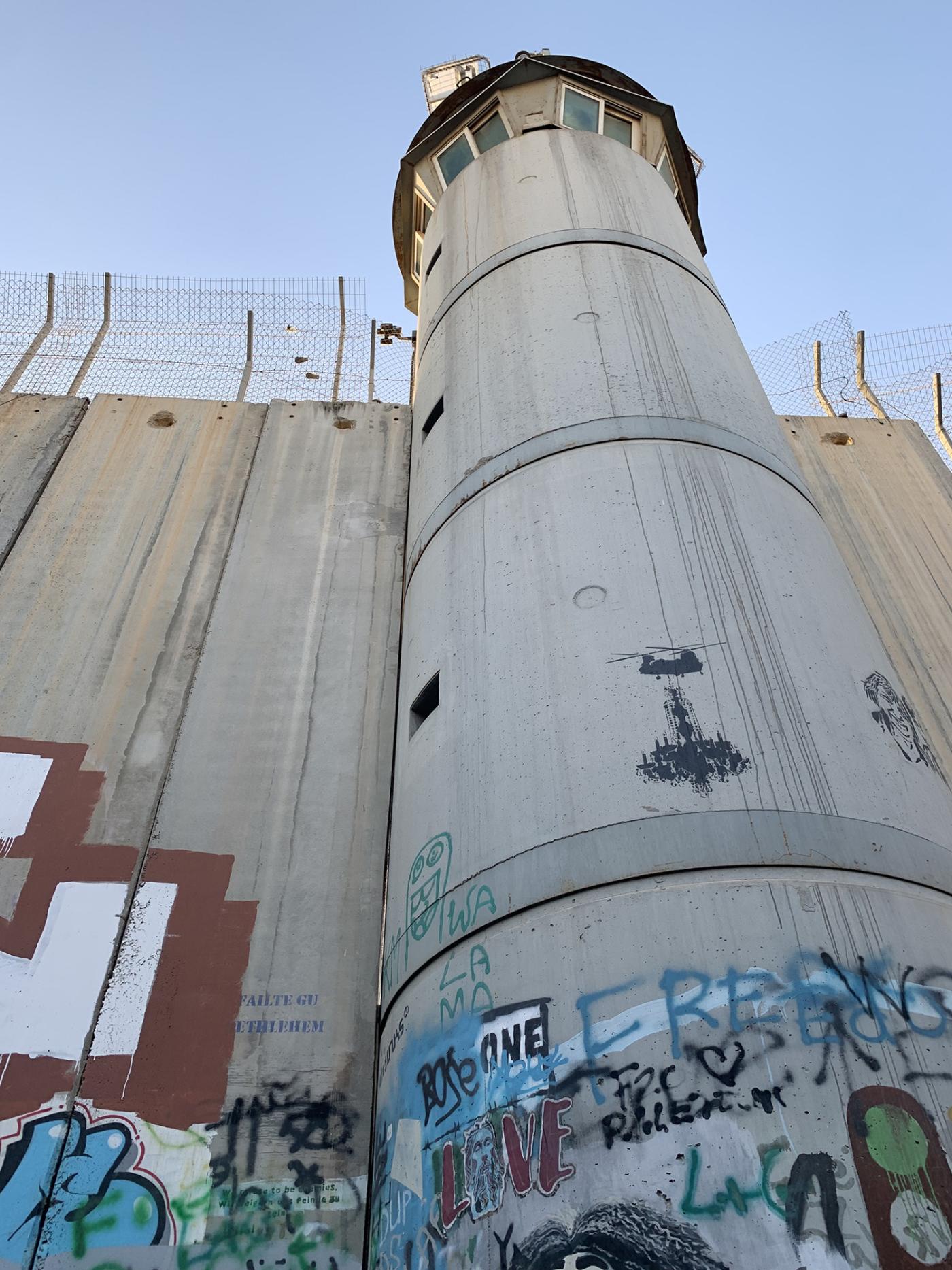
Photo: courtesy of Ashleigh
Now, in her old room in Utrecht, Ashleigh is processing her experiences. She says that despite having a strong academic understanding of the conflict (she wrote her thesis on Palestine), she’s realised that “there are things you can’t understand unless you see them for yourself.” Since it’s impossible to send everybody to the region, she believes that universities should include more sources from the global South in their curriculums. “Not just academics, but the stories of real people experiencing the things we learn about in this academic vacuum. I think the way universities teach about conflicts can be a little bit devoid of context and humanity.”
In her opinion, UU shouldn’t have gone for neutrality in its statement about the conflict because “a position of neutrality in this context is a position of support for the oppressor”. She is one of the people who signed the petition initiated by students of the Faculty of Humanities. “If universities are supposed to be bastions of knowledge, innovation, and critical thought," says Ashleigh, "I believe that we should be able to come up with a statement of support for all people affected – one that is both supportive of decolonisation in practice and empathetic to those affected by that process. UU has a responsibility to provide safe spaces to explore and advocate for a just and sustainable peace for both Palestinians and Israelis.”
Nadav (26) moved to Utrecht in August for a Bachelor’s in Economics & Business Economics. He grew up in Northern Israel but moved to a region not very far from the Gaza Strip at the age of 15. His family often suffered from rockets coming from Gaza. At 23, he moved to Tel Aviv, “but, by that time, there were rockets from Gaza targeting Tel Aviv too, so there was no escaping from that,” he says. “When you grow up in this kind of reality, you get used to it. You become very alert to everything that goes on around you. It’s not just rockets, there are also attacks with knives and guns. Two terror attacks put my life in danger in 2022.”
But he also believes that this awakens a sense of citizenship. “It gives you some kind of meaning. You want to grow up to contribute to society, protect your country, and give your best.” Nadav is starting his Bachelor’s relatively late because he chose to serve in the military for longer than the mandatory 32 months. When he realised the scale of the attacks of October 7, he considered going back to Israel to join the armed forces again, but his family and friends told him that he had already served longer than most people and it was time to focus on his studies.
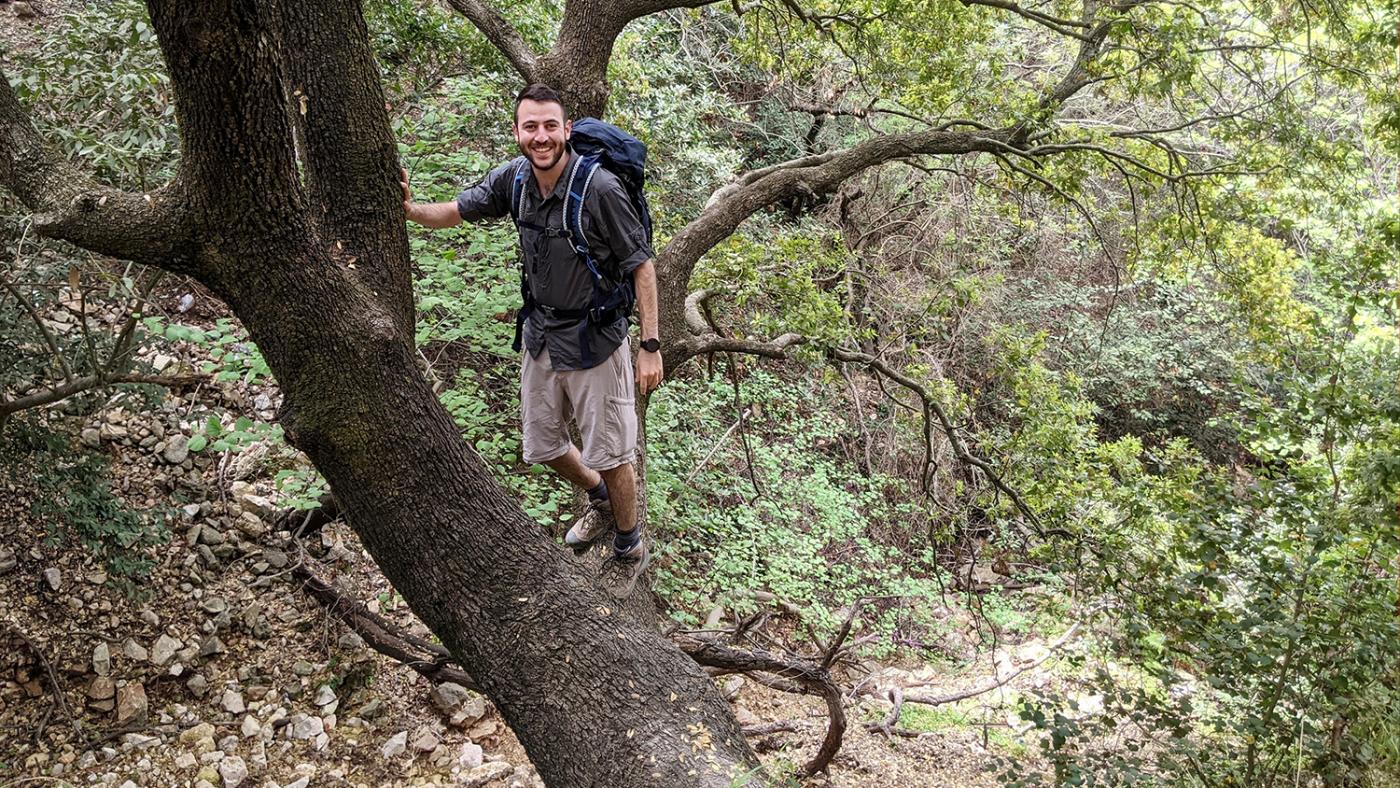
Photo: courtesy of Nadav
He decided to stay, at least for now. “The existence of Israel is not being threatened at the moment. But if something escalates in Lebanon and Iran, for example, it will be impossible for me to stay here. I’ll have to go back because we will be fighting for the existence of our country.” In addition, Nadav cancelled his plans for a ski vacation in December to fly back to Israel and try to volunteer for the army. “I will help out in any way I can. If not in the military, then I’ll go to the agricultural fields and help people over there.” He is not scared of the trip. On the contrary: he is looking forward to it.
Nadav knows people who lost their lives or were injured on October 7. One of his neighbours, a 23-year-old woman, was kidnapped from a party after being shot. “It’s very hard to be here in Utrecht when people in Israel are in danger,” he sighs, adding that his family has been running to bomb shelters several times a day because of rockets fired from Gaza. Some of his friends are also on the frontlines, fighting in the West Bank, the Gaza Strip, and Lebanon.
Suddenly, focusing on his studies has become challenging. “It’s really hard to sit in lectures or tutorials and try to concentrate while getting notifications on your phone every few minutes. It’s incredibly difficult to keep your head in the programme.” He says the only ones who are able to understand how he is feeling right now are fellow students from Ukraine, but everyone who has approached him so far has been supportive. “I haven’t had any arguments with people or encountered anyone who had a problem with me because I’m Israeli or Jewish.”
However, he does feel a need to explain certain things and debunk what he deems as misconceptions. “There is a lot of fake news,” he underscores, “and we should condemn extreme people from both sides.” He says he is happy to answer any questions DUB readers might have about the conflict*.
As for the university, Nadav says he understands its decision not to take a stand because doing so “is very complicated.” But he did expect UU to condemn the attacks of October 7 more firmly. “If you don’t condemn this type of act clearly, you’re on the wrong side.”
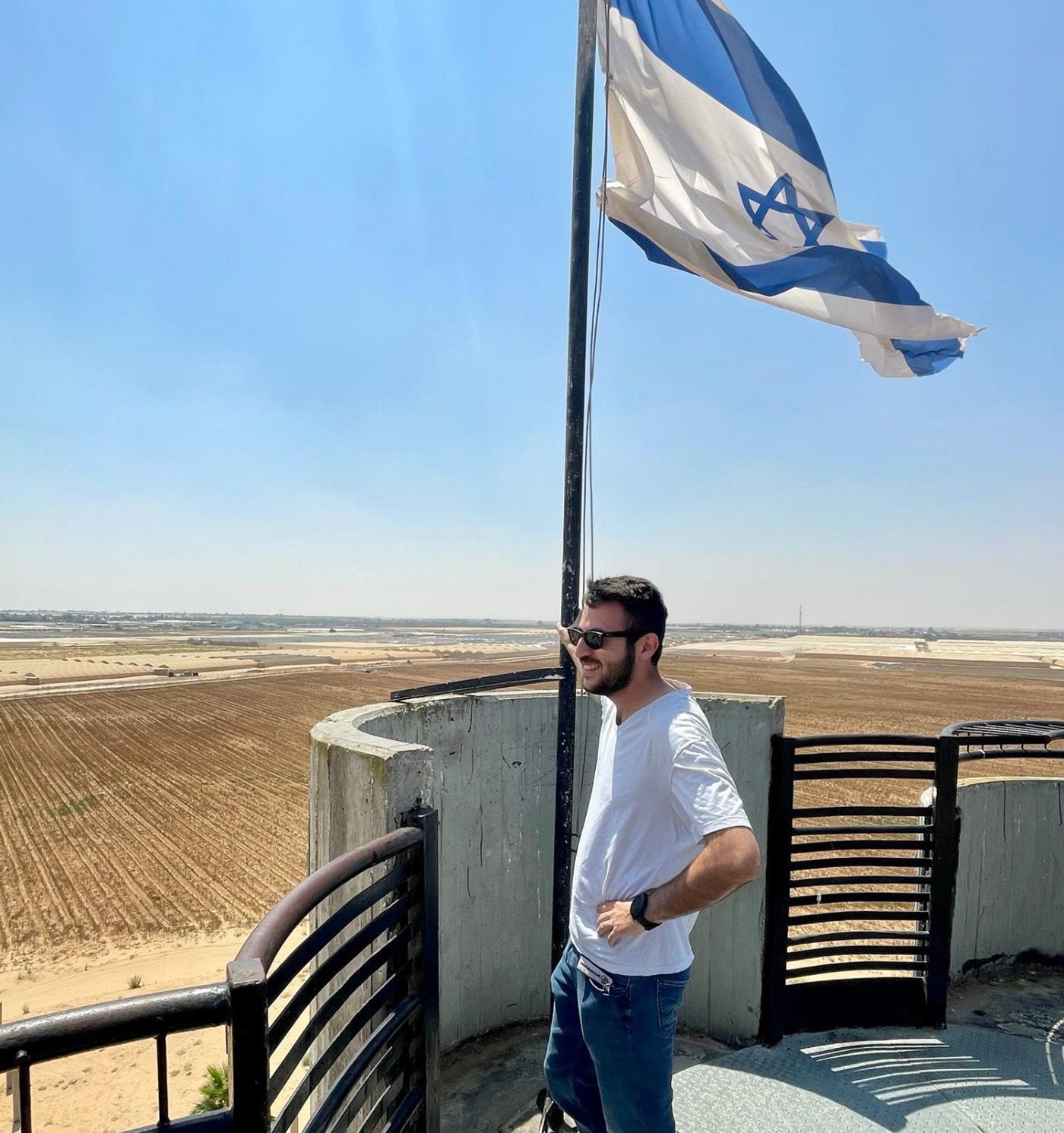
Nadav at a memorial site next to Kerem Shalom, near the Gaza Strip. Photo: courtesy of the student.
Nadav affirms that the Israeli armed forces take “all the necessary measures to avoid collateral damage," but the situation is complicated. "Terrorists and civilians are often living in the same buildings.” He adds that, when serving in the military, sometimes attacks against weapon warehouses or targets associated with Hamas were cancelled because there were too many innocent people around. “There are a lot of innocent people being hurt on both sides and a lot of innocent Palestinians getting killed during Israeli attacks. But it’s not like Israel is targeting those civilians,” the student says. He stresses that Israel is not fighting Palestinians for being Palestinians. “We are fighting a terrorist organisation that denies the existence of Israel and targets innocent civilians, including women, children and the elderly.”
What Nadav would really like to see is peace between Israelis and Palestinians. “We can’t continue fighting. Living in a constant war is not good for either of us or our children. We don’t want to live like this.” He is in favour of a two-state solution. “I think both sides will have to sacrifice a lot of land and resources, and a lot of their pride. However, Israel can’t have a peace agreement with Hamas because it’s a terrorist organisation. They are not partners for peace.”
*If you wish to send a question to Nadav, please write to DUB’s e-mail address.